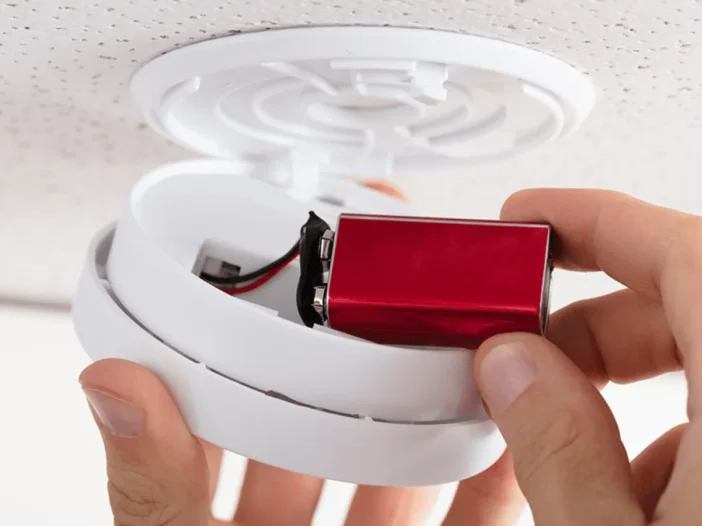
Homeowners and landlords with fuel burning appliances should comply with the new Wisconsin laws requiring the installation of carbon monoxide alarms. The alarms shall bear the mark of a listing agency. All single family homes and rentals where people sleep, new and existing, must install a CO alarm on every floor level near sleeping areas. The alarms should be tested monthly, the same as smoke alarms. Check batteries and replace twice a year. Replace alarms according to the manufacturer instructions. Carbon monoxide sources can include but are not limited to attached garages, heaters, fireplaces, furnaces, boilers, water heaters, and clothes dryers. The placement of carbon monoxide alarms should not be regarded as a substitute for proper maintenance of a fuel burning appliance by a professional.
In the event of a fire, a properly installed and maintained smoke alarm can save your life and those of your loved ones. Smoke alarms are a very important means of preventing home fire fatalities by providing an early warning signal so you and your family can escape. They are one of the best safety devices you can buy and install to protect yourself, your family, and your home. Smoke alarms have limitations. The manufacturer puts a specified life on the device, generally 10 years. Replace alarms that are older than 10 years. The National Association of State Fire Marshals recommends the 10 year, non-removable non-replaceable battery type.
Educational Materials
Carbon Monoxide Alarm Brochure
National Fire Protection Association – Public Education Materials